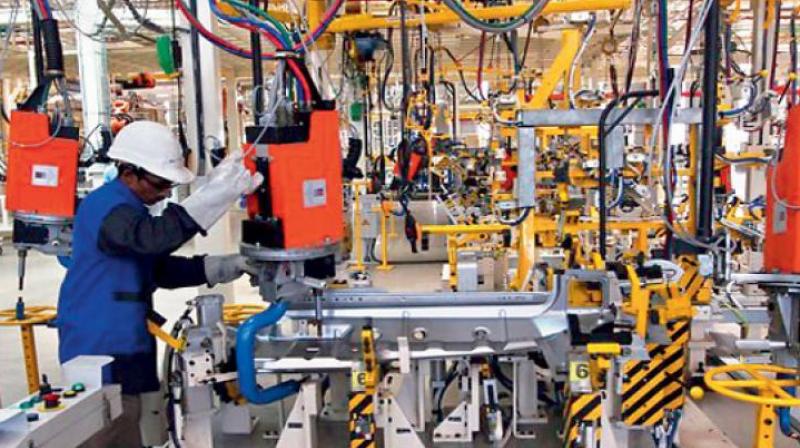Analysts say economic survey underlines headwinds to growth

Mumbai: Analysts opined that the Economic Survey has clearly captured the headwinds facing the economy as it lowers growth forecast and calls for a bold Budget.
"The projected GDP growth of 6.75-7.5 per cent for next financial year in the survey clearly flags the risks that the economy is exposed due to emerging global protectionism and rising oil prices," Ranen Banerjee, public finance and economics leader at PwC India said.
He also said the higher farm growth of 4.1 per cent camouflages the negative impact of deceleration in the industrial GDP of 2.2 percentage points in the overall GDP growth percentage. Richard Rekhy, chief executive of KPMG India said, "The survey points to a likely bold and reformative Budget that will have a strong focus on infrastructure, employment generation and easing business conditions.
The issue of NPAs is most likely to be addressed coherently, along with taking stock of the PPP logjams." He also said the survey signals that the economy is on a stable growth path.
The range comes due to global uncertainties, including protectionist tendencies. Rekhy also noted that the survey recognises the shortcomings of the economy and calls for required action from the Budget.
Jaijit Bhattacharya of KPMG said, the survey confirms the ballooning of bad debts and calls for setting up a bad bank to take away the toxic debts banks in the form of 'Public Sector Asset Rehabilitation Agency' or PARA.
The survey also brings back the age-old demand of a stable tax regime and widening of the tax base, including bringing real estate under GST, he noted. On the note ban impact, he said the survey has given a better picture of the impact of the move, calling for some measures in the Budget to address the issues created by it.
Sachin Sandhir of RICS said the survey indicates a reforms-oriented budget, including privatisation of public enterprises. Commenting on the survey, industry lobby Ficci's president Pankaj Patel said, the survey clearly lays out the challenges and opportunities that the economy faces.
He called for Budgetary steps to reap the long-term benefits of note ban with follow-up actions, such as providing a boost to demand, lowering tax rates, widening tax base and reforming tax administration.
He also welcomed the proposal to set up a bad bank under the name of public sector asset rehabilitation agency saying this can go a long way to address the issue of large and complex stressed assets, particularly in the infra sector.
On the proposal to have a universal basic income plan, he said alongside such a social security, there must be an equal emphasis on creation of jobs. The exporters body Fieo called for facilitating exports through FTAs and GST along with promoting labour intensive sectors.
Hailing the economic survey, Fieo president S C Ralhan called for a road-map to revive the economy hit by the note ban, by creating more jobs. "Identification of apparel and leather sectors in the survey, where China is slowly exiting the market, is both important for exports as well as employment.
There is need to bring a comprehensive package for leather and footwear sectors on the lines of the apparel and made-ups sectors," Ralhan said. He also welcomed the move to have FTAs with the EU and Britain which can provide exporters a level playing field viz-a-viz competitors in Bangladesh, Vietnam, Indonesia and Ethiopia.
Another industry lobby CII's Chandrajit Banerjee said the GDP estimate of 6.75-7.5 per cent is on expected lines and is achievable. "CII is hopeful that the Budget will deal with the aspects of creating demand, especially through direct tax interventions on the personal income tax and corporate taxation side," Banerjee concluded.

